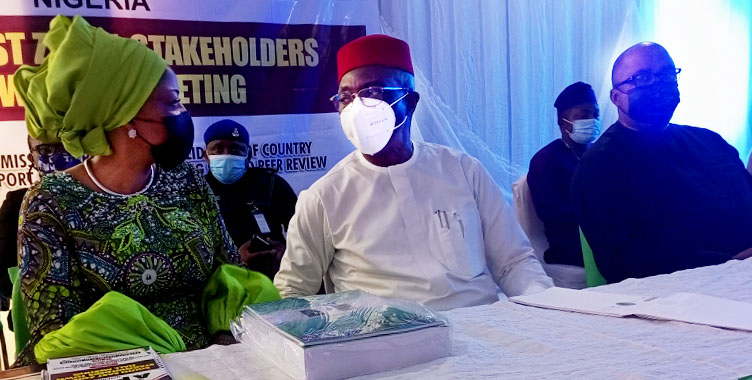Business
ECOWAS Bank Approves Over €61,526,000 For Projects In Benin, Others

The Board of Directors of the ECOWAS Bank for Investment and Development (EBID) has approved the sum of €61,526,000 to facilitate seven key projects in Benin, Bukina Faso and Cote d’Ivoire.
The decision to fund projects in these countries was reached at the 74th session of the Board when the latter met to review the activities of the bank for the second quarter of 2021 as well as consider key public and private sector projects for funding within ECOWAS member states.
According to a statement issued by the bank’s secretariat, the meeting which held virtually at the weekend, afforded management the opportunity to appraise the Board with important steps being taken to ensure the continued performance of the bank within the context of the prevailing Covid-19 challenges and key strategies being executed to ensure that the mandate of the Bank is met.
At the end of the meeting, the Board approved several governance reviews proposed by management in addition to the approval for funding of seven identified projects which had gone through all the credit processes of the bank.
The approved projects include funding for the rehabilitation and construction of two slaughterhouses in Ouagadougou and Bobo Dioulasso, and the construction of three new modern abattoir facilities in Ouagadougou, all in Burkina Faso, at a cost of twenty-six million four hundred thousand euros (€26 400 000). This is aimed at improving the living conditions of the population through the industrial processing of local raw materials from the livestock sub-sector.
Additionally, approval was also granted for partial funding of the construction of a new seven million, seven hundred thousand euros (€7 700 000) flour factory project in Cotonou, Benin Republic, with an annual processing capacity of about ninety thousand (90,000) tons of wheat.
The Board also approved the construction and operation of a cocoa processing factory in San Pedro Cote d’Ivoire, in the amount of twenty-eight million fifty-six thousand euros (€28 056 000), which aims to locally grind at least 50% of the country’s production.
The Board commended management on the key innovations and initiatives in the areas of research among others, and the execution of agreed strategies and pledged to provide the necessary support to fulfil the mandate of poverty alleviation, wealth creation and job promotion in the West African sub region.
EBID is a leading regional investment and development institution, based in Lomé, Togolese Republic. It has over the past four decades, invested approximately $2.8 billion in inter and intra-regional development programmes covering diverse initiatives from infrastructure and basic amenities, rural development and environment, industry, social sectors, and services.
EBID intervenes through long, medium, and short-term loans, equity participation, lines of credit, refinancing, financial engineering operations and services.
Business
NCDMB, Dangote Refinery Unveil JTC On Deepening Local Content
Business
Food Security: NDDC Pays Counterpart Fund For LIFE-ND Project
Business
Replace Nipa Palms With Mangroove In Ogoni, Group Urges FG, HYPREP
-
Rivers3 days ago
HOS Tasks Rural Dwellers On RAAMP … As Project Sensitization Team Visit Degema, AKULGA
-

 Politics3 days ago
Politics3 days agoReps Constitution Review Committee Holds Zonal Hearing For Rivers, C’River, Akwa Ibom In Calabar
-
Opinion3 days ago
Is Nigeria Democratic Nation?
-

 News3 days ago
News3 days agoI’m Committed To Community Dev – Ajinwo
-

 News3 days ago
News3 days ago2027: I Stand With Southern Presidency -Ortom
-
Politics3 days ago
Lagos LG Polls: Police Restrict Movement, Tightens Security
-

 News3 days ago
News3 days agoSenate Replaces Natasha As Committee Chairman
-
Opinion3 days ago
Checking Herdsmen Rampage

